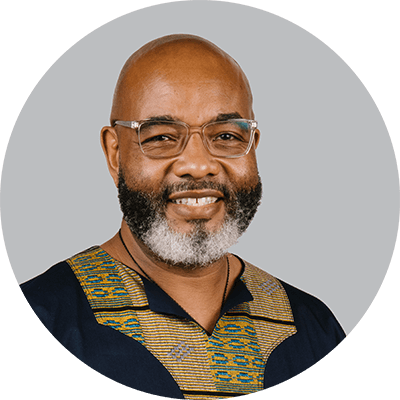The glaring lack of diversity in Succession shouldn’t come as a surprise to most executives. Diversity among Fortune 500 CEOs is declining. Nepotism is becoming more commonplace, with Gen Z being the biggest beneficiaries. Succession showcases some of the largest barriers facing underrepresented communities in business. But the show’s depiction of what happens behind the corporate curtain doesn’t just raise awareness of the problem, it points to an opportunity for companies to address the systemic issue through better leadership education, acknowledgment of lack of agency for marginalized people, and mentoring.
“Maybe we should get a history guy. You know, like a real brainiac, to say why this sort of thing has happened in the past, and that it’ll all be fine,” Tom Wambsgans says in this season of Succession, avoiding any bad press for potentially thwarting democracy. For years, this series has given clear examples of how the powerful skirt consequences for their actions, but the Roy family’s power has reached a pinnacle where they could rewrite the narrative of how they’re perceived in history.
The plausibility of Tom’s actions is debatable, but the Roy family’s corporate strategy reflects the problems that exist in even small corporations: Nepotism, gatekeeping, and a lack of investment in employees create a system where marginalized people do not have access to executive spaces. This results in an echo chamber where no outside viewpoints are brought to the table, and in the case of the Roys, power goes unchecked.
For viewers, is this really a surprise? Is the Roy family doing anything but taking advantage of the privileges afforded to them, those that come with being rich, white, and powerful? The more disturbing realization may be that it never occurs to them to do anything different. Promote a qualified employee who isn’t in the family? It’s not even on the radar. I mean, why do we need another perspective?
Just as telling as the lack of diversity in a Roy-controlled boardroom is the occasional exception. Stewy Hosseini is the only recurring person of color who appears in executive meetings throughout the series, but his story isn’t one of defying the odds or moving up the corporate ladder beginning with an internship. He’s Kendall Roy’s friend from childhood and later a classmate at Harvard University. His character arc doesn’t prove that marginalized people are reaching the top; it shows how the most common entry point is still education, wealth, and class.
And even then, there’s a misconception that when a marginalized person gets a seat at the table, their voice will be heard. Oftentimes, that singular seat at the table comes with an unspoken expectation that this person will hold the same opinions as their dominant identity peers and not challenge the status quo—that the perception of inclusion is enough. It’s one reason that many marginalized employees who are more than equipped for the executive level no longer pursue it. They would rather feel appreciated or safe in their current roles than move up the corporate ladder and be put in situations where they feel bullied, unheard, or ineffective. The lack of diversity in the C-suite is so established that many in underrepresented communities are choosing not to follow the traditional routes of advancement with corporations and organizations, even when the entity would be better off with their perspectives in the room. In fact, this is a driving force behind many marginalized people creating their own organizations so as not to compromise their values and integrity.
For marginalized communities, the roadblocks to corporate success start from childhood. As Stewy’s character suggests, access to the highest caliber of education was his entry point. This is the lack of agency issue that many times does not get addressed in our broader conversations. If we want to whittle away at the problem of an all-white, all-male boardroom, we need to invest in education and mentorship programs as soon as possible.
For companies welcoming new hires, this means investing in better leadership development and mentoring at the start of a person’s career. Organizations are finding success in implementing leadership development programs for marginalized employees. Companies are innovating faster by offering workplace education to their newest talent.
Yet many at the executive level are worried about developing a new hire’s skills only to see them move to bigger companies and greener pastures. This seems to be especially true when hiring talent from marginalized communities. Why invest in educating, mentoring, and training these employees just to see them become leaders for other organizations? But if a boss’s only concern is what an employee can do for them, they’re missing the point. Worse, they’re perpetuating the mentality that if a company invests in an employee, it owns that employee. Organizations need to reframe the way they look at employee development. People want to work with companies that invest in their growth, especially when, systemically, the odds are stacked against them to advance in their careers. Business can be an agent for social good, and better trained, more emotionally intelligent, more diverse executives—regardless of which company they end up working for—is good business for us all.
If we want to keep people like the Roys from having a monopoly in their industry, we need to start hiring differently from the Roys. Education remains the key tool to battle nepotism and glass ceilings, but we need to remember that education comes in many forms, such as HBCUs (Historically Black Colleges and Universities), state institutions, and not just the elites of the educational hierarchy. For companies, leadership development tackles the problem of C-suite homogeny and will not only attract top talent but retain it. Building a company committed to DEI initiatives will yield new perspectives and new opportunities to innovate, and that’s our greatest defense against the dinosaurs.

Aaronde Seckou Creighton is chief diversity officer and principal consultant for Leadership Circle. He actively leads and consults to global clients and leaders. Seckou Creighton serves as a member of the global faculty for The Leadership Circle Profile and Collective Leadership Assessment certification programs and is an ICF Professional Certified Coach.





